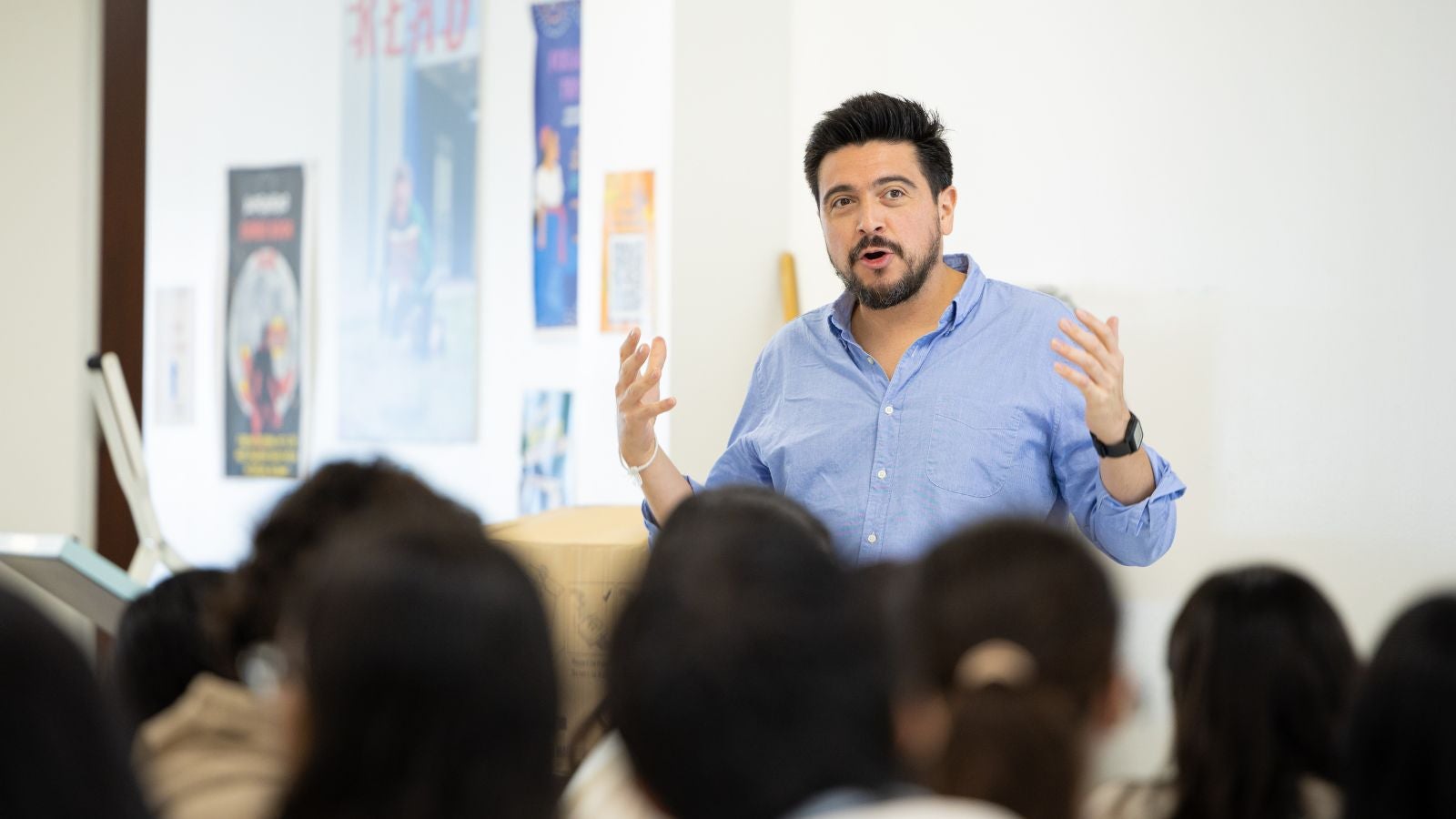On October 26, Rodrigo Ferreira, an assistant teaching professor in computer science, asked the students of YES Prep public schools to consider “What Does it Mean to be LatinX?”
Ferreira, a member of Rice’s Broadening Participation in Computing (BPC) committee, spoke to the group as part of the school’s LatinX Leadership Summit, whose 2024 theme was “Mosaic de Cultura - Piecing Together LatinX Heritage.”
Born and raised in Mexico City, Ferreira has lived in the US for the majority of the past two decades, which gave him a unique perspective from which to address the students. He encouraged them to challenge longstanding stereotypes and myths about Latin American identity in the US. He also spoke about the history of mestizaje and encouraged students to continue that tradition by bringing festiveness, compassion, and collectivity into their personal and future professional lives.
“I was very happy to have an opportunity to encourage students to define their identity, not by any nationalistic standards or by past historical differences, but in terms of what they want LatinX to mean moving forward,” Ferreira said.
The summit is an opportunity for LatinX high-school students and staff to celebrate and connect with one another and features presenters from the Houston community. The students appreciated hearing from a host of voices. “My favorite part of the summit was to learn what it means to be Latinx through different types of views,” said one attendee. “We learned that ‘Latin’ is a definition of our own,” said another.
YES Prep is an open-enrollment public charter school system for students in Houston’s most underserved communities. Its mission is to empower Houston students to succeed in college and pursue lives of opportunity.
Participating in outreach programs for K-12 students is one initiative of the BPC committee, which aims to provide support to students from historically excluded communities who may want to pursue a career in computer science.

